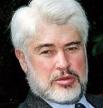Misplaced euphoria over a hat trick of the same old policy contradictions
Last week's budget speech by the finance minister, Malusi Gigaba, was the third major policy pronouncement South Africa has heard since Cyril Ramaphosa became president of the country earlier this month. The first two were Mr Ramaphosa's state-of-the-nation address and his reply to the debate on that address a few days later.
Predictably, all three speeches have generated a mood of optimism, even euphoria. Some of the actions starting against skulduggery have reinforced this mood. Given the rejoicing at the departure from office of Jacob Zuma, this mood may last a while yet.
But, unfortunately, all three speeches were characterised by the same old contradictory ideas as we have heard year in and year out on these occasions.
Mr Ramaphosa promises "a major push this year to encourage significant new investment in our economy". Mr Gigaba says investors must be provided with "the certainty required to increase investment" since "job creation is critical", but he also promises "radical socio-economic transformation". The ease of doing business must be "improved", but all contracts above R30 million must be compulsorily subcontracted to "designated groups".
Mr Ramaphosa quotes Nelson Mandela as having said that the poor must become "their own liberators", while also hailing as "historic" the new national minimum wage that will price many of them out of the labour market. That new minimum, which comes into force on 1st May, also contradicts his promise to "reduce the regulatory barriers for small businesses". It further contradicts his plans to "re-industrialise on a scale that draws millions of jobseekers into the economy". These ambitious industrialisation plans are themselves then contradicted by the requirement that they be "underpinned by transformation".
Mr Ramaphosa cites the introduction of the national minimum wage as an example of what is possible when South Africans engage in "dialogue". This is a delusion. The introduction of the wage demonstrates what organised business and organised labour can come up with when small business and the unemployed are unable to participate in their "dialogue".
Mr Gigaba says the competition authorities will continue to "root out" anti-competitive behaviour, but Mr Ramaphosa says "we will forge ahead with localisation", which is itself an anti-competitive policy.
Mr Ramaphosa promises "decisive action" this year to realise the "enormous economic potential of agriculture" and calls for "increased investment" in this sector by financial institutions. However, at the same time he reiterates his commitment to "expropriation of land without compensation".
He also promises "intensive engagements" with all "stakeholders" in the mining sector to reach agreement on a mining charter that "both accelerates transformation and grows this vital sector of the economy". Yet even before the third version of the mining charter was issued last year, the mining industry was in decline, suggesting that earlier, milder, transformation requirements imposed on that industry were incompatible with making it grow faster.
On race, Mr Ramaphosa says "we are building a country where a person's prospects are determined by their own initiative and hard work and not by the colour of their skin". But he also promises to "deal decisively with companies that resist transformation". How he plans to reconcile his threat of "decisive action" with his plans to "encourage significant new investment" he did not explain.
The National Development Plan published in 2012 said South Africa needed an investment level of 30% of GDP to push economic growth up above 5%. Even before the ruinous regime of Jacob Zuma, we got nowhere near that. The best year was 2008, when the level was almost 24%. Although Mr Gigaba talks of the need to provide investors with certainty, all three of these speeches do the opposite. Mr Gigaba may not continue long in office. But Mr Ramaphosa's two big speeches contained even more contradictions than the budget speech.
He states that the country's "most pressing challenge is youth unemployment". But his own most pressing challenge is to liberate himself from the ideology of transformation and the view that more intervention by the state will generate all the jobs we need.
* John Kane-Berman is a policy fellow at the IRR, a think-tank that promotes political and economic freedom.

